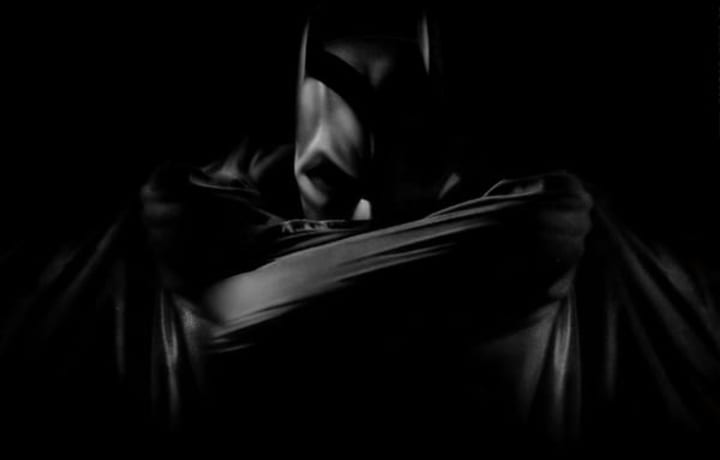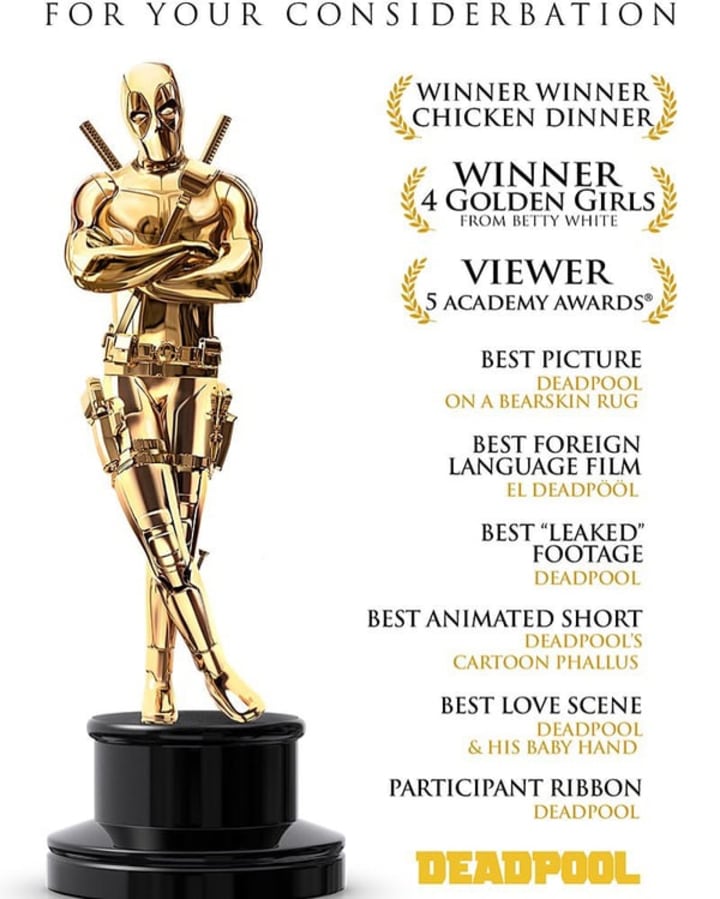
2016 is the year of the superhero. Marvel is launching Phase 3 of their Cinematic Universe with the epic Captain America: Civil War. DC used 2013's Man of Steel as the launchpad for their own rival Expanded Universe, with the controversial Batman v Superman: Dawn of Justice and the promising Suicide Squad.
The fans are divided. Some applaud Marvel, while others criticize their films for being 'formulaic.' Some criticize DC films for being joyless, while others celebrate a darker, grittier superhero world. Where does the truth lie? Let's turn to an interview with legendary writer Alan Moore, creator of Watchmen and writer of The Killing Joke. Although the interview dates all the way back to 2009, his prestige among comic book creators gives his words some real weight.
The first caution: creativity!

Watchmen are certainly creative!
When Moore created Watchmen, he was trying something that had never been tried before in comics. To his surprise, the experiment paid off — perhaps too well. The comic book industry fell in love with the idea of 'dark and gritty,' and began to copy that approach. Moore's response to this legacy is quite shocking:
"Can I just say I’m sorry? That was never my intention for every book to be like that. The reason I wanted to do them like that was because nothing else was like that. I wanted to do something that was different."
To Moore's disappointment, the comic book industry saw something that had worked, and simply tried to rinse-and-repeat the approach. As he observes:
"I think, ultimately, that approach that I brought in — taking previously existing characters and reinterpreting them — has probably led to very grim and very unenjoyable comic books."

Well, he IS the Dark Knight!
At face value, this is a warning for Zack Snyder. Massively influenced by Watchmen (he made the classic film version), Snyder has become known for the dark, grim visuals that are so very potent in his films. Moore's words are a caution: When you reinterpret superheroes in this way, you risk damaging them. Again, as Moore observes:
"I don’t think that the world needs that many brooding psychopathic avengers. I don’t know that we need any."
But this is actually a warning to Marvel, as well. Moore's frustration with the Watchman-esque approach comics took was simply that he felt the comics missed the point. He was being creative. He wrote Watchmen to prove that you could make any comic work. He wanted to encourage the industry's writers to exercise their imaginations and produce new, fresh stories with an original style and tone — whether light or dark.

One of Marvel's current stars!
The criticism of the 'Marvel formula' does have some weight to it. Marvel films are particularly known for their one-liners, and the more superheroes there are in the battle, the more one-liners you seem to get. But that said, Marvel has had the sense to vary their formula quite a bit — from space opera in Guardians of the Galaxy to superhero heist film in Ant-Man. Every Marvel film has a unique touch to it, differentiating it from the rest in creative terms. But is it differentiated enough?
Here's where it gets really interesting. The truth is that Marvel Studios has established their brand as PG-13 — the sex and gore are reserved for Netflix. If you watch a Marvel movie, you know you're going to get something with characterization, humor, and a lead-in to Avengers: Infinity War. Oddly, superhero fans keep looking to the next trailer and thinking this will be the 'dark and gritty' Marvel film (check out this review of Captain America: Civil War, for example). But Marvel needs to balance the requirement to be creative with the need for brand consistency. Despite having recruited a notable horror film director to head up Doctor Strange, I can already say with confidence that film will have a degree of humor to it.
Moore's warning still stands, though. As Moore observes, both Marvel and DC can copy what was the true heart of Watchmen:
"I’d have preferred it if they’d copied the freshness and originality of the ideas."
The second caution: dare to be different!

Suicide Squad looks AWESOME!
This leads me nicely on to the second warning Alan Moore gives the superhero films, and frankly, the fans. Here's what Moore sees as the problem with modern superhero comics:
"It’s the paucity of imagination...It’s tragic. The comics that I read as a kid that inspired me were full of ideas. They didn’t need some upstart from England to come over there and tell them how to do comics. They’d got plenty of ideas of their own. But these days, I increasingly get a sense of the comics industry going through my trashcan like raccoons in the dead of the night."
Let's face it, he's right. 2015 saw Marvel and DC both run multiverse-spanning events that revisited major storylines from their past. The X-Men comics are locked in an endless cycle of near-extinction and bare-bones-survival. Even DC's Rebirth looks set to try to restore some aspects of the DC universe they lost in the New 52. Comic books keep treading the same old ground.

Secret Wars - nostalgia embodied!
Do we fans really want our superhero movies to head the same way? If we do, then we'll keep insisting that the companies 'honor the source material' by never digressing from them at all. We'll say that Captain America: Civil War doesn't really represent the Civil War event unless we get the Iron Spider costume, that Wolverine should be shorter, and that Batman has a code that means he never, ever kills.
I want more from my superhero films than for them to simply reproduce comics on the big screen. The reason Deadpool was so successful and Fantastic Four wasn't is simple; as James Gunn put it:
After every movie smashes records people here in Hollywood love to throw out the definitive reasons why the movie was a hit. I saw it happen with 'Guardians.' It 'wasn’t afraid to be fun' or it 'was colorful and funny' etc. etc. etc. And next thing I know I hear of a hundred film projects being set up 'like Guardians,' and I start seeing dozens of trailers exactly like the 'Guardians' trailer with a big pop song and a bunch of quips. Ugh. Ugh. Ugh. Ugh. Ugh. Ugh.'Deadpool' wasn’t that. 'Deadpool' was its own thing. THAT’S what people are reacting to. It’s original, it’s damn good, it was made with love by the filmmakers, and it wasn’t afraid to take risks."

Comic book fans would have you believe Deadpool was true to the comics in a way other X-Men movies have never been. To which I can only say three words:
Teenage. Negasonic. Warhead.

There is literally only one similarity between the comic book and film versions of the character. That's the name.
Deadpool flourished because it dared to take risks, because it was made with love, and because it stood as its own thing. It embodied the kind of lessons Alan Moore points to.
In the past, comic books have been influenced tremendously by films and TV series. Gotham City drastically changed after Tim Burton's 1989 Batman film. Harley Quinn was introduced in the Batman Animated Series, and made her way over into the comics. Marvel's X-23 — who has now taken on the mantle of Wolverine — was introduced in the animated series X-Men: Evolution.

Don't mess with Wolverine!
The creative teams on those projects dared to do something different, and they did it so well that elements were absorbed into the comics for all time. But what are the current films adding? For Marvel, we've now got an Agents of S.H.I.E.L.D. series, some redesigned costumes, and a lot more snark from Tony Stark. After thirteen films, those are all the new elements the MCU has added into the comics. That's not a promising sign.
It works the other way, too. Why is it we're already asking which Batman stories Ben Affleck's film will be based on? Why does it have to be based on any? Why can't Ben Affleck do his own thing? After all, Tim Burton radically rewrote the Joker's backstory for Batman, and you don't (often) hear fans complaining about that. Why are we getting an animated movie of The Killing Joke, when DC could do something original? (After all, Alan Moore — who wrote the original — considered it the worst comic he'd ever written.)
As much as we fans love the comics, we need to let go and let the creative teams do their own thing. Then we'll get movies that — dare I say it — transcend the superhero genre we love, and that breathe new life into our superhero worlds. As one of my fellow Creators, Max Farrow, put it:
The bottom line is that without these fresh quirks, franchises would turn into rote, frame-for-frame copies that don’t offer anything that couldn’t be already consumed through by riffling through a comic book, and we would have none of the pleasures that fresh faces, new stories and different elements have to offer.
So there you have it. Alan Moore is a legend in the comic book scene, but in this 2009 interview you find the seeds of some harsh advice for the superhero genre. DC and Marvel, both take note.
Source: Mania
About the Creator
Tom Bacon
A prolific writer and film fan, Tom has a deep love of the superhero genre.






Comments
There are no comments for this story
Be the first to respond and start the conversation.